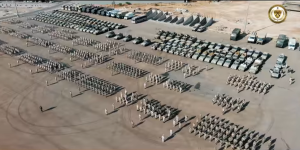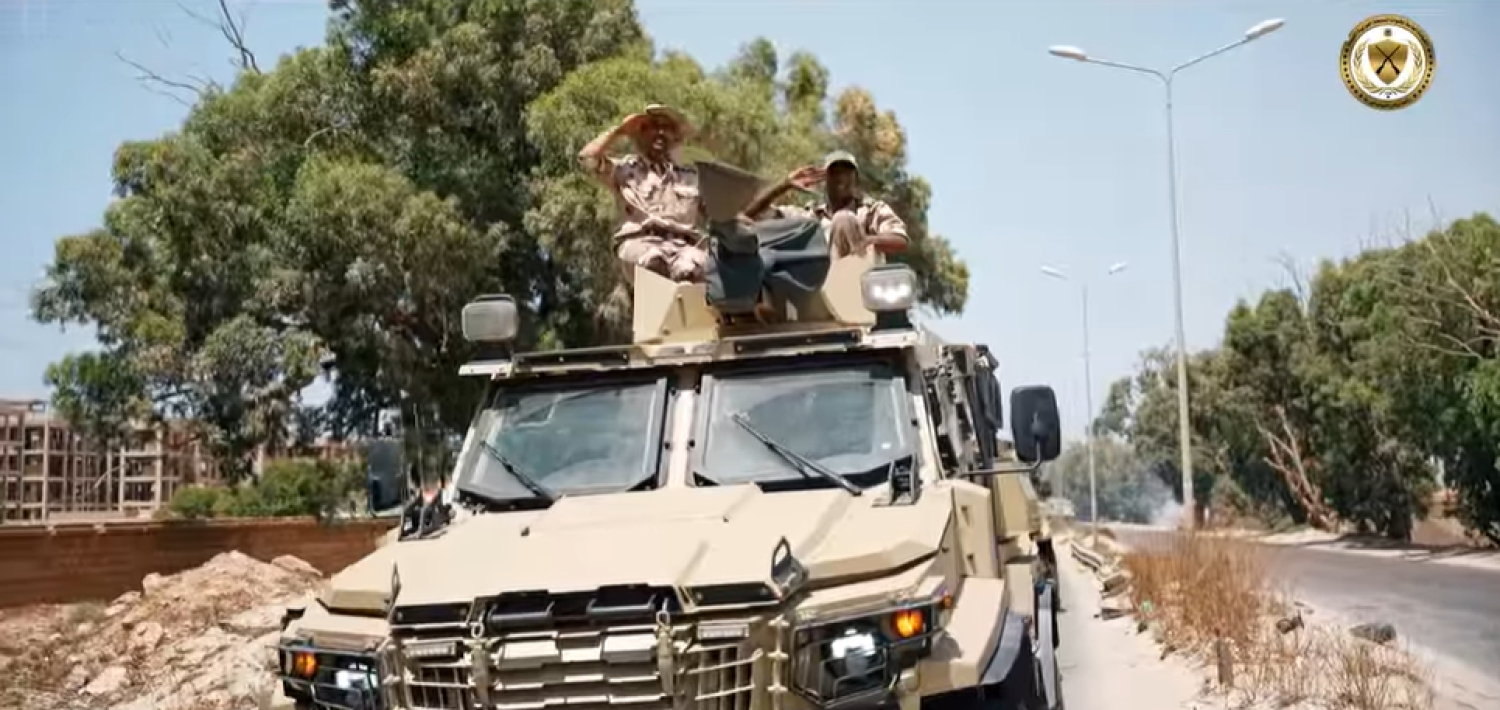The military and political scene in Libya has become tainted with tension, anxiety and fear, following the movement of the Libyan National Army, led by Field Marshal Khalifa Haftar, to the southwest of the country, amid the readiness of the Tripoli authorities and the summoning of their forces.
Libyans monitored the movement of military convoys belonging to the National Army from the Tamanhint base (south), towards the city of Ghadames, located near the border triangle with Tunisia and Algeria. This move came after the announcement of the Chief of Staff of the Land Forces, led by Saddam Haftar, yesterday, Wednesday, the transfer of military units affiliated with the Chief of Staff to various cities and regions of the southwest.
The Chief of Staff did not clarify the destination of its military forces but said that this move comes under the directives of the Commander-in-Chief “within the framework of a comprehensive plan to secure the southern borders of the country and enhance the country’s national security and stability in these vital areas, by intensifying desert patrols, and monitoring the border strip with neighboring countries.”
It indicated that the General Command seeks with this move to “enhance security on the borders and confront any threats that may target the safety and stability of the country.”

It seems that the vicinity of the city of Ghadames, located in the far west of Libya, will turn into a scene of heated events in the coming days, due to the recent military mobilization between loyalists of the interim “unity” government, headed by Abdul Hamid Dbeibeh , and loyalists of the Libyan National Army.
In what amounts to raising the level of alert in preparation for a “possible attack,” the Deputy Chief of Staff of Dbeibeh’s forces, Lieutenant General Salah Al-Namroush, today (Thursday), gave instructions to his forces’ units to raise the level of readiness to repel any possible attack, without providing further details.
The “Joint Operations Force” of the Western Libya Forces today (Thursday) called on all its members and supporting forces to be present immediately at the force’s headquarters, accompanied by all their equipment and gear, and in a brief statement, it simply said that “the matter is of utmost importance.”
Nasser Ammar, commander of the “Volcano of Rage Operation Support Force” loyal to the Dbeibeh government, spoke about the presence of military crowds that set off from Misrata to the capital, Tripoli, since early morning, pointing out that several brigades have joined, including “Al-Adiyat”, “Abu Bakr Al-Siddiq”, “32nd Reinforced Brigade Battalions”, and “Al-Mujahid Battalion”, whose members are arriving successively, as part of the supporting forces to unify the “Fajr Al-Hurriya Operations Room” with the western operations.
This development came amid tense atmosphere in the capital, Tripoli, following a dispute over the presidency of the Supreme Council of State between its outgoing president, Mohamed Takala, and its former president, Khaled Al-Mishri, in addition to the Attorney General’s order to arrest the Minister of Oil and Gas in charge of the Dbeibeh government, Khalifa Abdul Sadiq.
Libya’s notable participation in the Victory Day celebration in Moscow
